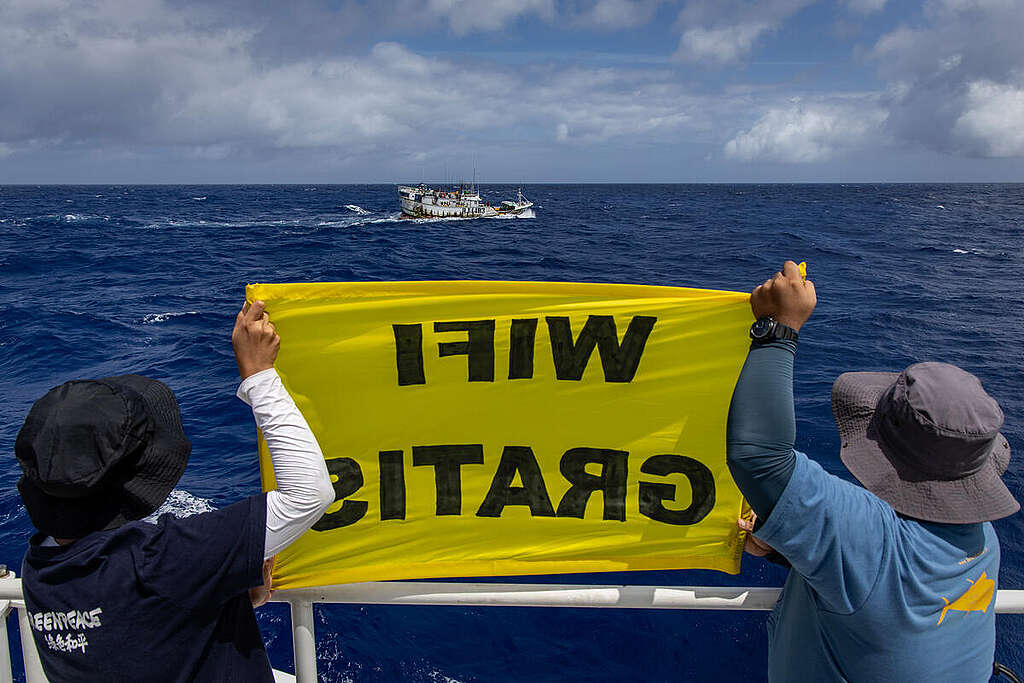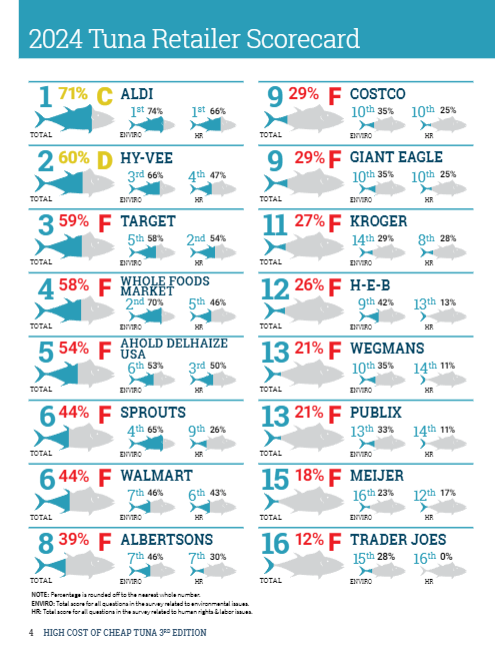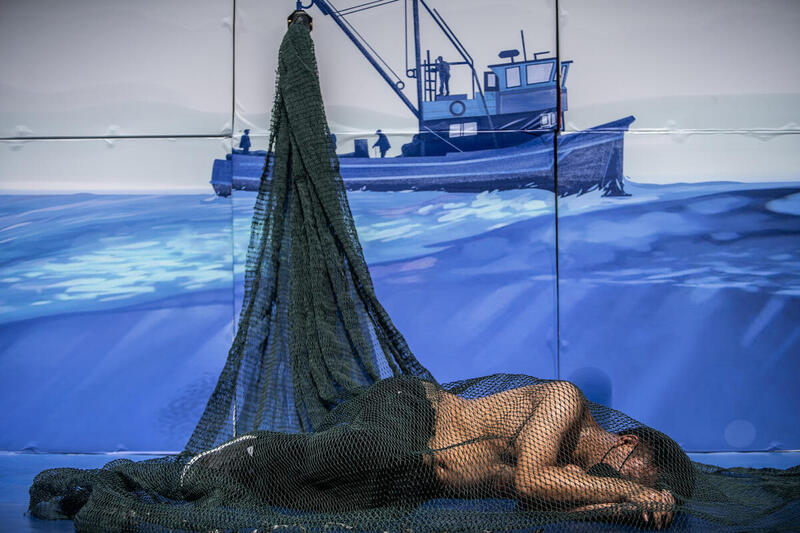Imagine heading off to work, leaving behind your pregnant wife as she prepares to welcome your first child into the world—not knowing if you will hear her voice or see her face or that of your newborn for months, maybe even years. Picture the ache of longing to check in on your elderly mother, to find solace in her words after a grueling day, yet being completely cut off. Now, imagine watching a coworker fall gravely ill or pass away, powerless to call for help or inform their loved ones of their fate. For many workers in the distant water fishing industry, these harrowing realities aren’t just hypothetical—they are lived realities of isolation from basic human connection and support that have been shared with Greenpeace campaigners and fishers unions.
The vital role of WiFi for fishers
In the vast expanse of distant waters, fishers can spend months, sometimes years, at sea, completely cut off from communication with their families, unions, and the outside world. This isolation leaves them highly vulnerable to exploitation and abuse, as widely reported by migrant fishers themselves. From physical and psychological abuse, extreme extended work hours, and wage theft, the human rights and labor violations the fishers have reported are severe and unrelenting. For many of these workers, the ability to contact loved ones is more than just a mere convenience–it’s a lifeline to emotional support as they navigate one of the most dangerous jobs in the world.
 Rainbow Warrior crew hold a banner reading “WiFi Gratis” (free wifi) to a fishing vessel in the pacific ocean. For fishing workers, access to communication is their rights, according to the international labor convention that covers fishers (ILO C-188). Secondly, it enables fishers to be in contact with their unions – an internationally-recognized fundamental labor right. And finally, it’s essential for human connection. © Ulet Ifansasti / Greenpeace
Rainbow Warrior crew hold a banner reading “WiFi Gratis” (free wifi) to a fishing vessel in the pacific ocean. For fishing workers, access to communication is their rights, according to the international labor convention that covers fishers (ILO C-188). Secondly, it enables fishers to be in contact with their unions – an internationally-recognized fundamental labor right. And finally, it’s essential for human connection. © Ulet Ifansasti / GreenpeaceIn August-September 2024 a Greenpeace USA-led team aboard the Rainbow Warrior undertook an investigation into fisheries practices in the North Pacific, including waters near the Emperor Seamounts. A moment of connection brought a rare reprieve to fishers working in the region. Free wifi was shared with migrant fishers aboard several vessels, who reported being at sea for at least three months. Eager to connect with family and friends, the fishers immediately jumped online, and the transformation was palpable. Faces lit up as they smiled, laughed, and shed tears of joy. For a brief moment, the crushing weight of isolation was lifted.
Sadly, for many of the estimated 128,000 fishers trapped in forced labor such relief remains heartbreakingly out of reach. Their stories are a stark reminder of the urgent need to address the systemic injustices that plague the distant water fishing industry.
Beyond fostering human connections, Wi-Fi is a crucial tool for accountability in the seafood industry. Connectivity empowers fishers to communicate their working conditions, seek assistance from unions, and access legal support when needed-exposing and creating a deterrent against abuse and exploitation.
Wi-Fi can also play a critical role in combating harmful practices, such as illegal, unreported, and unregulated (IUU) fishing, which thrive in the absence of external oversight. With real-time access to communication, fishers can report such violations, shining a light on abuses hidden in the vast, unmonitored expanses of the ocean. In doing so, connectivity not only safeguards individual rights but also strengthens the integrity and sustainability of the global seafood industry.
How retailers can drive change
Retailers, as influential players in global seafood supply chains, have significant power to promote ethical practices and drive systemic change. By setting and demanding higher standards, they can champion a fairer, more humane industry–one that respects the dignity and rights of the often unseen workers who form its foundations. However, the findings of Greenpeace USA’s The High Cost of Cheap Tuna 2024 report reveal how far the industry still has to go. Out of 16 major U.S. grocery retailers assessed on their human rights and environmental practices, 14 received failing grades. On human rights specifically, all but one retailer—Aldi, which scored 66%—failed outright. Alarmingly, all retailers performed worse on human rights than on environmental standards.
 2024 Tuna Retailer Scorecard from Greenpeace USA’s “The High Cost of Cheap Tuna 2024” © Greenpeace
2024 Tuna Retailer Scorecard from Greenpeace USA’s “The High Cost of Cheap Tuna 2024” © GreenpeaceInternational retailers like Aldi and Walmart have an especially critical responsibility to ensure that human rights abuses and illegal fishing practices don’t reach the thousands of supermarket shelves they manage worldwide. Among the steps they can take, advocating for access to Wi-Fi on distant water fishing vessels is a simple yet profoundly impactful measure.
By taking decisive actions in other areas as well, retailers can influence seafood suppliers to improve traceability and transparency within their supply chains, creating a safer environment for fishers. These actions include:
- Enhance Traceability & Transparency: Retailers should demand full visibility into their supply chains, ensuring that the vessels they source from meet human rights and environmental standards. Wi-Fi access on vessels could play a key role in monitoring supply chains in real-time.
- Commit to Phasing Out Transshipment: Transshipment—where fish are transferred between vessels at sea—is often linked to illegal fishing and labor abuses. Retailers should announce public, time-bound plans to eliminate this practice, which also allows for easier monitoring of conditions at sea.
- Implement Grievance Mechanisms: Workers need accessible, effective ways to lodge complaints when they face abuse or mistreatment. Retailers can advocate for grievance mechanisms on vessels, supported by Wi-Fi access, ensuring workers can communicate concerns directly to unions or human rights organizations.
- Foster Compliance with Fisheries Regulations: Retailers must ensure that they only source from vessels that are fully compliant with international fishing and labor rights regulations. This includes sourcing from vessels where 100% independent human or electronic catch monitoring is in place. By pushing for this level of oversight, retailers can help eliminate illegal, unregulated fishing and associated human rights violations.
- Hold Suppliers Accountable: Retailers must address noncompliance swiftly, implementing performance improvement programs that hold suppliers accountable for meeting human rights and environmental standards. Those that fail to comply should face clear and enforceable consequences, ensuring a level playing field for all operators in the seafood supply chain.
A collective responsibility for change
Retailers are uniquely positioned to drive change by demanding better practices and prioritizing human rights and environmental sustainability in their sourcing decisions. However, their efforts will only be successful if they are part of a broader, collaborative effort to reform the industry. Real progress towards an industry in which exploitation of people and our oceans are no longer tolerated as the price of doing business and keeping costs low requires action by governments, international organizations, and the seafood industry as a whole.

Tell global seafood trader FCF that it’s time to step up for the oceans, marine life, animals, and workers at sea.
Sign nowElizabeth Monaghan is Greenpeace Southeast Asia Engagement Lead for the global Beyond Seafood Campaign, and Tanya Brooks is Greenpeace USA Senior Comms Strategist

 20 hours ago
16
20 hours ago
16
 (@greenpeace)
(@greenpeace)
